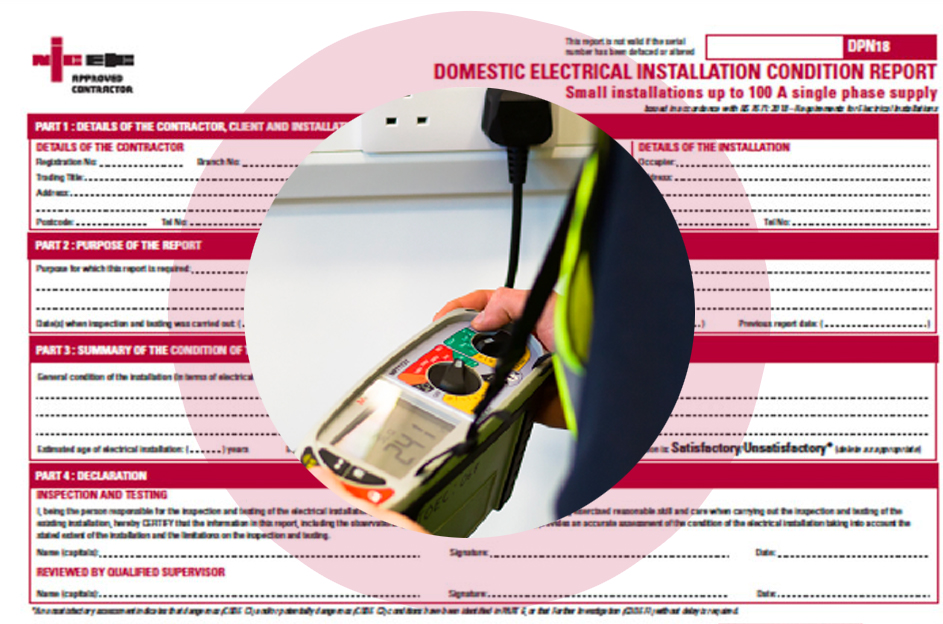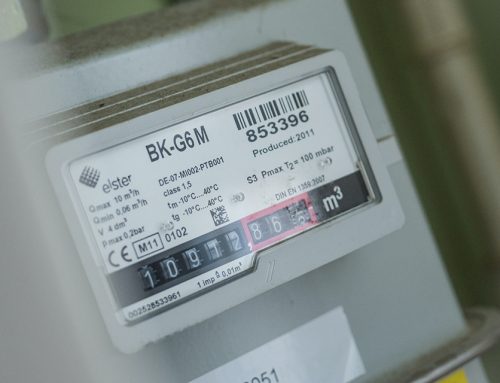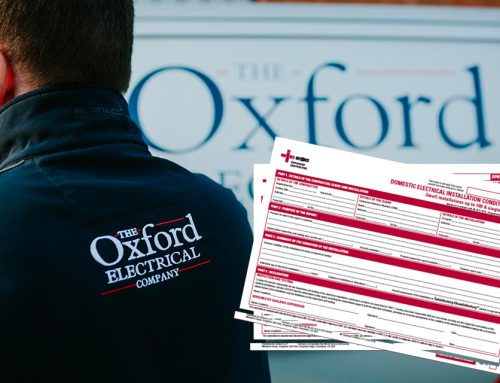Since April 2021 all landlords are required to complete a EICR every five years to evidence your building’s electrical installation is safe and fully functional. Although not specifically mentioned, commercial landlords are generally thought to be included. If you are a business, in a rented commercial building, it is not your responsibility to have this completed but the results will help you run your business more efficiently and safely.
An electrical installation condition report (EICR), sometimes known as a periodic inspection and testing, is an in-depth inspection carried out by a qualified electrical engineer on the internal wiring of the building, rather than the equipment. It allows businesses and/or landlords of commercial buildings to identify anything that might need attention – be that damage, deterioration, or simply the overall condition of the electrical system. The EICR also includes fixed wire testing; ensuring that wiring is not degrading over time.
Under the regulations of BS7671 the electrical engineers report that follows the inspection will detail if the system is satisfactory, and if work needs to be carried out. It is an essential test for the health of your business/building’s electrical systems and ensures that any preventative maintenance can be completed before a problem escalates.
The Institute of Electrical Engineers (IEE) recommends that an EICR is completed on commercial properties every 5 years, or when there is a change in occupancy (whichever comes first). It is recommended that more frequent checks are made on properties that are open to the public, as your EICR certificate acts as proof of the health and integrity of your business’ or building’s electrical systems.
Whose responsibility is the EICR Certificate?
Landlords or the owners of the building are responsible for arranging periodic inspection and testing of electrical system. They are required to hire a registered electrician and let the tenants know if the report shows that anything needs changing or improving.
If you are unsure of your responsibilities for electrical maintenance and safety as a commercial landlord, there are several relevant pieces of legislation that will help make things clear.
In The Landlords and Tenants Act of 1985 there are several clauses on electrical safety in rented commercial property. In Section 8, Subsections a) and b) of the Act, it details that the electrical installation in the property must be:
- Safe at the beginning of the tenancy
- Maintained in a safe condition for the entire duration of the tenancy
The 1957 Occupiers’ Liability Act and the 1984 Occupiers’ Liability Act also apply to commercial landlords. It stipulates that landlords also have a duty of care for anyone visiting the property, not just the tenants. This is especially important in commercial properties that are open to the public. Landlords can be prosecuted if someone is injured because they did not observe the electrical safety guidelines – whether that person was there legally as a guest, or trespassing.
5 reasons businesses need, and can benefit from, an EICR
1 To remain safe and legal
Fixed Wire Testing is legally required by the IET Wiring Regulations Seventeenth Edition (BS 7671). The Health and Safety Executive (HSE) also enforces the Health and Safety at Work Act 1974 and the Electricity at Work Regulations 1989.
As mentioned above, landlords of commercial properties can be prosecuted if there is an injury due to their failure to comply with the law. An EICR will enable you to fulfil your obligations and provide peace of mind that systems are checked and adequate.
2 To save money
EICRs can identify any overloading that may be tripping circuits, disrupting operations, and increasing bills by using more energy. Frequent overloading can also lead to damaged equipment which will cost money, as well as making production less efficient.
3 Keep people safe
A close inspection of your system will identify possible fire or shock hazards, preventing an accident that could harm the buildings tenants.
4 Validating business insurance
As part of your policy conditions, your insurance company may require you to complete periodic testing and have proof that you have done so. An EICR provides this. In the event of an insurance claim, a pay-out may not be approved if you have no evidence that you had done all you could to avoid the incident.
5 Helping to reduce your carbon footprint
The findings of an EICR can help identify areas where you could reduce your energy consumption. Over and above identifying any overloading that might be increasing energy usage and bills, your electrical engineer may be able to make recommendations about lighting, heating, or energy monitoring changes to reduce your energy use and improve your Energy Performance Certificate (EPC).
Your EICR check with The Oxford Electrical Company
When we come and complete your report, we will be able to highlight any issues and will talk them through with you so you can decide what action to take. Our report will categorise their importance as C1, C2, C3 and FI.
C1 – for immediate action
C2 – for urgent action
C3 – recommended improvements
FI – Further investigation required
We can then arrange for any necessary repairs to be made so that your EICR is satisfactory as well as recommend the frequency of EICRs for your building, ensuring you stay safe and compliant.
Give us a call to get a no obligation quote on 01865 803017 or email info@theoxfordelectricalcompany.co.uk




